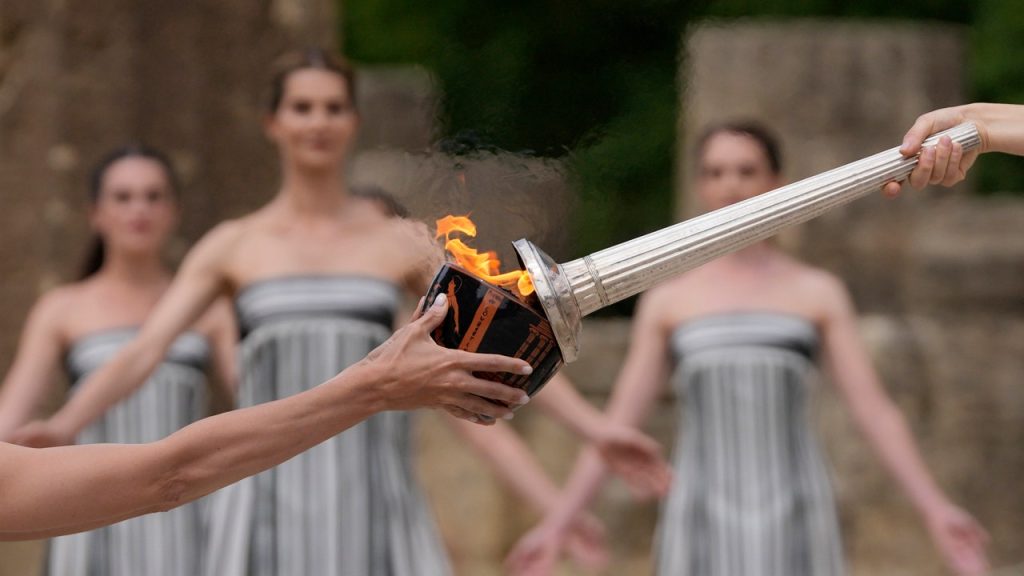The Olympic torch is set to enter France after a journey that began with its lighting in Ancient Olympia on April 16 and a trip around Greece. It then left Athens on a three-mast ship named Belem bound for Marseille, where it will be carried by torch bearers through the city, including a stretch on the roof of the Stade Vélodrome. This will be followed by a relay route across France before the torch reaches Paris for the opening ceremony of the Games on July 26.
The torch’s route will take it to various iconic locations in France, including Mont Saint-Michel in Normandy, a visually stunning site that has a rich history dating back to the Hundred Years’ War. It will also pass through France’s overseas territories as part of the Ocean Relay, covering French Guiana, New Caledonia, Réunion, Tahiti, Gaudeloupe, and Martinique before returning to mainland France in Nice.
After its overseas detour, the torch will head to the Alpine mountain pass of Chamonix-Mont-Blanc, known for its ski resort and cheese production, for Olympic Day before traveling to the Doubs region, Alsace, and Verdun—a site of a significant World War I battle. The torch will arrive in Paris on Bastille Day, France’s national day, and stay in the city before heading to Versailles, Nanterre, and Seine Saint-Denis on its way back to Paris for the opening ceremony.
The final destination of the torch’s journey is being kept secret, with potential iconic locations like the Eiffel Tower or the Tuileries Gardens outside the Louvre Museum being rumored. Security measures are in place with 10,000 people carrying the torch along the route, and local police forces providing a security bubble around the torch and its carrier. The torches themselves have been designed to have a lower environmental impact, burning biogas instead of propane and made with recycled steel rather than new aluminum.
In total, 2,000 torches will be used for the Games, a significant reduction from previous Olympics, which used over 10,000 torches. This eco-friendly approach is part of Paris 2024’s commitment to sustainability, with the torches being recharged when fuel runs out and made with recyclable materials. Overall, the Olympic torch’s journey through France is not only a celebration of the Games but also a showcase of the country’s rich history, cultural heritage, and dedication to environmental consciousness.


